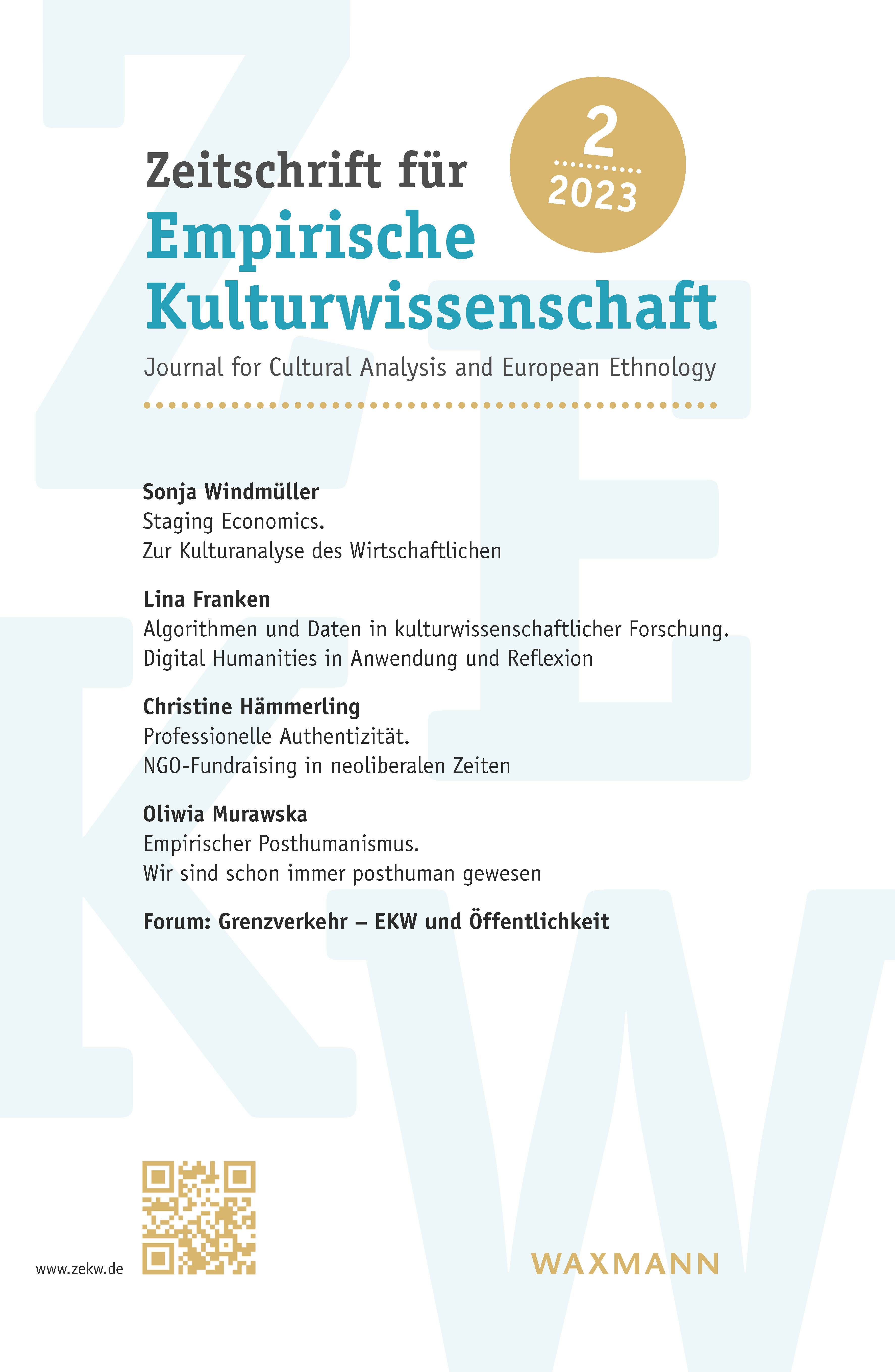Abstract
Although posthumanism has arrived in cultural anthropology, there is still uncertainty regarding the methodological implementation and practicability of its postdualist, post-anthropocentric, post-humanist demands. This paper addresses these uncertainties asking what ethnographers can do to participate in or even advance the posthumanist project, which empirical methods are suitable for this purpose, or how they have to be transformed in the light of the posthumanist paradigm. The thesis pursued here is that due to their ethnographic orientation cultural anthropologist have always possessed a posthuman sensibility, which equips them well for the posthuman turn. Indeed, cultural anthropology and posthumanism can benefit from and complement each other to an empirical posthumanism. To explore the field of empirical posthumanism, anthropological positions that can be identified as empirical posthumanist are first discussed. In a further step, concrete methods are presented that have proven suitable in empirical posthumanist geo-centered studies conducted by the author in Kashubia. Then, it is clarified, how an empirical-posthumanistic approach affects the researcher’s attitude in the research process as well as the quality of the knowledge produced, and what implications it has for the research ethics.

This work is licensed under a Creative Commons Attribution 4.0 International License.
Copyright (c) 2023 Zeitschrift für Volkskunde

